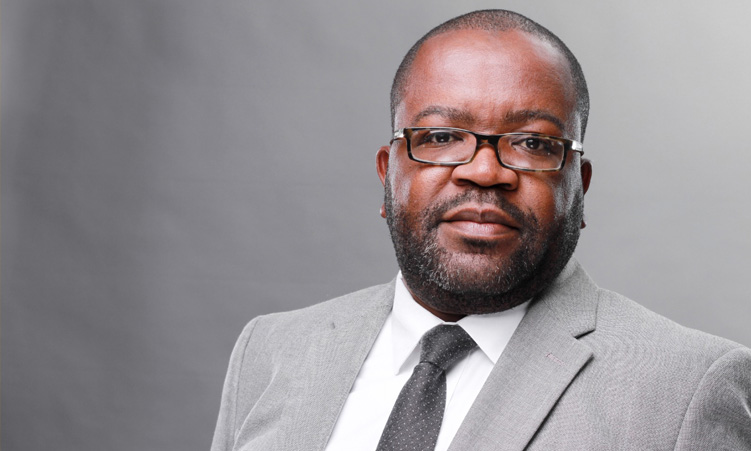Namibia’s Higher Education sector remains highly centralised more than 30 years after independence.
While this may have been appropriate at a time, as the world continues to change, we need to explore other models that will ensure this sector contributes more to bettering society.
Higher education benefits society by cultivating individuals with the intellectual gravitas to address current and future challenges and envision a better tomorrow. It equips people with essential skills in fields like medicine, accounting, teaching, surgery, engineering, poetry, history, IT and management.
Beyond technical expertise, it fosters advanced knowledge generation.
To achieve this, we must reconsider and (re)imagine our public higher education system.
This is not a critique of current leaders of our higher education institutions, but a call for a needed overhaul of the entire sector to maximise the return on the billions invested in education.
WHAT MUST HAPPEN?
This sector cannot be agile enough to respond to national challenges in its current form.
Having two main public institutions with campuses countrywide and a centralised leadership in Windhoek needs to change.
A new model should consist of multiple public universities countrywide that can also offer specialised subjects in line with grassroots needs.
The University of Namibia (Unam), with 12 campuses, and the Namibia University of Science and Technology (Nust), with two campuses, can be transformed into standalone universities with separate leadership structures.
In essence, this would create seven public universities.
These universities can focus on different subjects, although there may be instances where some subjects can exist at multiple institutions.
Initially, the main universities will remain those in Windhoek for structural and historical reasons.
However, this will change over time, and we will have a developed higher education system producing graduates based on the needs of regional, national and global markets.
Furthermore, Namibia needs a technikon university to fill the gap left by the Polytechnic of Namibia.
A technikon will allow TVET graduates to pursue N6 qualifications locally instead of going to South Africa.
Lastly, we must re-examine absorbing teacher colleges into the larger Unam education system, because that decision has led to unintended consequences, one of which is not producing enough teachers for Namibia’s schools.

BENEFITS
Firstly, it creates a competitive market that benefits students, educators and society. Students will have more choices on where to study based on what a university offers.
Administrators who have spent years as effective leaders with little opportunity for further advancement will have more options to lead rather than only competing for two chairs.
Universities will have to compete for students and instructors alike and be forced to treat them in a way that makes people want to stay or leave.
Similarly, students will have to compete for admission and the ability to stay based on the institution’s standards.
Both educators and students will have options of where to go or to remain closer to home, rather than have to relocate in pursuit of the education of their interest.
This may also open opportunities to grow the international student population from neighbouring countries and beyond.
When more campuses become universities, it will mean leaders will focus specifically on their institutions’ needs.
They would have to make a case for why their institution is best.
They may highlight having the best library, supportive student affairs offices, rigorous curricula, student-to-teacher ratio, etc.
They will need to pursue collaborative agreements with other institutions inside and outside Namibia, provide study-abroad opportunities and much more.
This can also lead to more defined intercollegiate/university leagues for competitive sport and other activities, leading to further national athletic development.
The proliferation of private institutions in Namibia underlines the need for change and competition in the higher education sector.
Ideally, competition should provide more choices to those pursuing post-secondary education.
No matter how comfortable the public higher education sector is, the competition is real and cannot be ignored.
CONCLUSION
The Higher Education Act 26 (2003) sets out Namibia’s higher education governance structure.
However, it does not dictate how higher education should be laid out.
The National Council for Higher Education (NCHE) features centrally in the act. It oversees, coordinates and regulates higher education so that it is of quality and accessible to all.
In this proposed model, NCHE will still play the same role and ensure that higher education remains a public good.
Globally, higher education is undergoing a multitude of changes.
Current tensions result from technological innovations, academic freedom, student mobility, and significant finance-related issues.
Next year, Namibia will elect a new president who will bring on a new team to determine the country’s direction.
As we think through what that next direction will look like, we must not limit decentralisation to government services, which often involves moving offices from one location to another.
We must also look at ways to decentralise public higher education so that it is responsive and adaptive to our people’s circumstances and lived experiences.
- Tutaleni I Asino, PhD, is an associate professor in learning, design and technology and the director of the emerging technology and creativity research lab at Oklahoma State University’s College of Education and Human Sciences. The views expressed are his own.
- Lameck Mbangula Amugongo is an artificial intelligence specialist and AI ethics adviser based in Europe. He holds a PhD in cancer science from the University of Manchester. The views expressed are his own
Stay informed with The Namibian – your source for credible journalism. Get in-depth reporting and opinions for
only N$85 a month. Invest in journalism, invest in democracy –
Subscribe Now!






